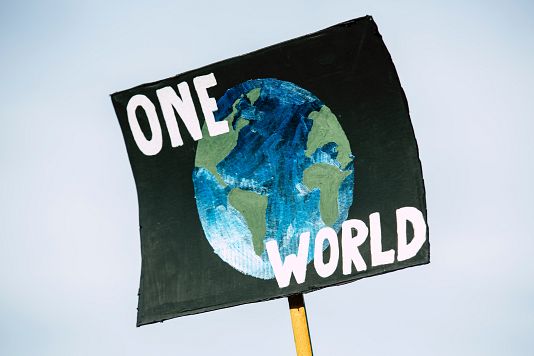To solve the climate crisis, leaders must create more diverse teams and international partnerships so solutions can be scaled.
The views and opinions expressed in this article are those of the author.
Last week’s Intergovernmental Panel on Climate Change’s (IPCC) report, came as a sharp warning that climate change can no longer be ignored. The immense challenges created by the pandemic have highlighted more than ever the importance of responding to scientific modelling like this before it’s too late. The way we respond to the IPCC report will reverberate for generations to come.
The worrying report confirms that there is no longer any question that humans are the main drivers of climate change and that the impact on all of us will only get worse if no action is taken. It is imperative that we act now, based on science. What we all must do now – governments, private sector, and civil society – is as urgent as it is complex.
While everyone in society has a part to play, scientists are inevitably at the heart of the response. In particular, physicists will play a crucial role in expanding our knowledge of the climate crisis and finding sustainable solutions.
IPCC: Climate change report 2021 boosts diversity
But what often is not at the forefront is that we need the science community tackling climate change to be diverse. Diverse backgrounds give us diversity of thought and it’s essential to have a broad range of experiences and perspectives when addressing a problem as complex and widespread as climate change. For example, cultural experiences, educational backgrounds, first-hand experiences of climate damage will all influence how scientists tackle a problem and with how much urgency.
While there is still work to be done, it’s encouraging to see it reported that the group of scientists working on the IPCC report has become more diverse since the previous report was published.
So, how do we boost diversity in the physics and wider climate science communities further? This is not only an issue for scientists but one that needs us all to work together to tackle the societal barriers that prevent or discourage people from underrepresented backgrounds entering the field of science and particularly physics.
Debunking climate myths
These barriers take many forms, such as the misconception that physics is only for extremely brainy, academic people or ‘geniuses’. The outdated image of the stereotypical white lab coat does not reflect the reality of what physicists look like in the 21st century, and we need to do more to dismantle these myths. Increasing diversity doesn’t just mean saying ‘study physics’ or ‘study science’, we need to show the vast array of careers and opportunities that they can lead to. And those careers and opportunities are open to academic and apprenticeship pathways.
No one can argue that it’s a good idea to have our climate action plan developed solely by privately educated people from the West who have no first-hand experience of how impacts are felt differently around the globe. We need people who’ve lived and breathed the effects of climate change to be included in the conversation.
Last year at the Institute of Physics (IoP), we launched the 'Limit Less' campaign which aims to support young people from all backgrounds to pursue an education in physics. From my own experience in social justice, we have to work hard to nurture a diverse workforce to make it fair and accessible to all. It does not evolve on its own.
Climate change solutions
Nor can we find the solutions to the climate crisis in one country. Just as they have during the pandemic, countries must come together to work on the problem. That’s why we need governments to recognise the importance of international collaboration so that research and innovation, supported by access to funding as well as skilled people, can continue at a pace.
Recently, we set about gathering evidence on that point. We undertook a feasibility study with the Association of Commonwealth Universities to determine how we can collaborate with researchers in Africa to address some of the climate problems. This study starts to create a framework that will increase the skills needed to support research collaboration between countries.
Recently, we set about gathering evidence on that point. We led on the development of a proposal to increase research collaborations between the UK and Africa, with the climate being one of the focus areas.
The proposal presented the idea that the UK would also benefit and that by working together to develop compatible education and training schemes, we can tackle that challenge, and potentially access a huge wealth of skilled talent, at the same time. The proposal was evidenced through a participatory feasibility study, conducted in partnership with the Association of Commonwealth Universities.
Getting to net-zero
International collaborations can help to ensure that any efforts to address the effects of climate change do not widen existing economic and societal disparities. The pandemic has shown how global issues can widen the inequality gap and it is incumbent on all of us to make sure that is not the case with climate solutions.
Making sure that we have enough physicists with the right skills to tackle climate change is of course the first step but we need to factor in that the people doing the research and making the decisions reflect the diversity of our global society.
Reaching Net Zero – where a balance between the carbon emitted into the atmosphere and the carbon removed from it is achieved – is an essential goal so let’s look more closely at the work that goes into achieving it and at the scientists working at the forefront.
- Rachel Youngman is the Deputy Chief Executive of the Institute of Physics for the UK and Ireland












